Get Started for FREE
Sign up with Facebook Sign up with X
I don't have a Facebook or a X account

| Tags |
|---|

 Your new post is loading... Your new post is loading...
 Your new post is loading... Your new post is loading...
Cleaning up the brain's trash to reverse cognitive decline in Alzheimers dementia
Dr. Maud Nerman, DO., CSPOMM, CA's insight:
Over 100 years ago, the founder of osteopathic medicine, Dr. Andrew Taylor Still, MD, had a remarkable insight about disease and the body's ability to get rid of its trash. He observed that when the body's trash removal system - the lymphatics - was working unimpeded, "we have no substance detained long enough to produce fermentation, disease, sickness, or death." That insight, once dismissed and ignored by medicine, is now being proved correct as researchers have rediscovered the power of the lymphatic system to amplify the body's healing powers.
Nowhere is this "revolution" in the understanding of the key role of the trash removal system more pronounced than in the study of neurological impairments of the brain. We now know that the brain's lymphatic system - known as the "glymphatic system" - is critical to the brain's health. One prominent researcher has even stated that "essentially, all neurodegenerative diseases are associated with the accumulation of cellular waste products." The brain's toxin removal system is impaired after traumatic brain injury. Unless it is repaired and fluid flow restored, inflammation will ravage the brain. When the system starts to work better, the brain can begin its journey towards healing.
This research study is fascinating because it explores another aspect of the brain's trash removal system in connection with Alzheimers' dementia. More and more studies are exploring the potent effects of cleaning out the amyloid beta trash that builds up in the brains of AD patients. In this study, the researchers used ultrasound to provoke immune cells in the brain, known as microglia, to ratchet up their trash removal activities. In 75% of the mice, the re-energized microglia removed enough of the amyloid beta plaque in the brain to result in improved performance in three memory tasks.
If this research is translatable to human beings, it represents a dramatic step in the conquest of this terrible disease and reinforces the principle that cleaning up the trash helps the brain heal. The next step would be to flush those activated immune cells and their trash burden out of the brain entirely. That will be the subject of another scoop! in the near future.
This study, conducted in an active theatre of war, demonstrates that NAC, a safe pharmaceutical countermeasure, has beneficial effects on the severity and resolution of sequelae of blast induced mTBI. This is the first demonstration of an effective short term countermeasure for mTBI.
Dr. Maud Nerman, DO., CSPOMM, CA's insight:
If you keep up on the literature about TBI, one comment you see over and over is: "there are no treatments for TBI" -- other than rest, and perhaps some drugs for symptomatic relief and some cognitive rehab. They certainly don't believe there is any treatment in the first 24 hours after injury. Except, it turns out, there is. This is a difficult problem to research. In order to study effective treatments, researchers need access to patients within those first critical hours, a time when most patients are unaware they even have a mild traumatic brain injury. Then the researchers would have to make sure the patients were compliant with the treatment and be able to reassess them at the end of a certain period. Where could researchers find such a group of patients? In the theater of war. A group of researchers traveled to a field hospital in Iraq to test their hypothesis that NAC (N-acetyl-cysteine), a derivative of the amino acide L-cysteine, could protect the brain against cognitive, vestibular (balance) and auditory injuries to the brain following blast exposure. The researchers chose NAC for a number of reasons: it has a 40 year safety record, it has shown strong neuroprotective effects in animal studies, and it has potent anti inflammatory and anti-oxidant properties. And since it doesn't cross the blood brain barrier very easily, it can enter the brain in the places where injury has made the barrier permeable and focus its healing effects there. In this double-blinded, placebo controlled randomized study, 29 soldiers were given a dose of NAC within 24 hours of sustaining concussions following exposure to significant ordnance blast. The results at the end of seven day course of treatment were nothing short of astonishing. Of the 29 soldiers who were given NAC and a headache medication within 24 hours of injury, 86% had complete symptom resolution within seven days, as compared to 11% of those receiving placebo treatment. In other words, 86% of the soldiers receiving NAC and the headache medication had normal cognitive tests at the end of seven days. The researchers have followed this study with another one to confirm their findings. (I will be discussing that shortly as well). NAC is an emerging superstar in the quest to find safe and effective treatments for MTBI. NAC is safe, well-studied in other contexts, derived from an amino acid contained in our food, and works with a broad spectrum of actions and with multiple systems in the body. This study and others like it are once again demonstrating that the brain will heal with the right kind of help.
The reviewed literature consistently reported that benzodiazepines result in cognitive impairment when plasma levels are at their peak. Evidence of residual effects on cognition was also reported for benzodiazepine.
Dr. Maud Nerman, DO., CSPOMM, CA's insight:
While most of the articles here deal with treatments to improve cognitive impairment after TBI, I think it's critical to know what makes the situation worse. Benzodiazepines such as Valium, Lorazepam, Clonopin, and Xanax are reported not only to make cognitive impairment worse, but to have long term residual effects on cognition. Avoid them if you possibly can. If you are having sleep disturbances, there are many safer - and natural - alternatives. See my curated topic on Alternative Treatments for Concussion-related Sleep Disturbance.
A treatment developed at the Children’s Hospital of Philadelphia (CHOP) and proven to restore cognitive abilities in mice with traumatic brain injuries will soon be tested in college athletes who have sustained concussions. he new treatment consists of a cocktail of three, branched-chain amino acids (BCAAs) —leucine, isoleucine and valine—designed to help restore an imbalance of neurochemicals caused by TBI. The therapy has been tested successfully in mouse models of TBI in the lab of Akiva Cohen, Ph.D., associate professor of neurology, neurosurgery and pediatrics at the University of Pennsylvania’s Perelman School of Medicine, and CHOP.
Dr. Maud Nerman, DO., CSPOMM, CA's insight:
Branched-chain amino acids - known as "BCAAs" - have long been known to have healing effects in the brain. BCAAs are natural amino acids that are derived from the proteins in our foods. BCAAs are the building blocks of neurotransmitters, the chemicals that neurons use to talk with each other and are critical to the way the brain uses glucose. Both glucose and certain key neurotransmitters (NTs) are in short supply after a traumatic brain injury. BCAAs can help rebuild the NTs and replenish glucose supplies. We are talking about a powerful natural brain healer. in 2005, BCAAs were administered at a rehab facility to patients in a persistent vegetative state. An astonishing TWO THIRDS of treated patients woke up from their persistent vegetative state after nourishment with BCAAs. (read the research here: (http://www.ncbi.nlm.nih.gov/pubmed/18760149) Studies with mice in 2010 demonstrated that brain injured mice treated for 5 days with BCAA had their brains restored to a normal level of cognitive activity. Dr. Akiva Cohen of the University of Pensylvania's Perelman School of Medicine, a leader in this research, is now planning a clinical trial on college athletes who have had concussions. Since BCAAs are well studied in other contexts and have been safely used for years, this is an exciting development which could lead to a safe, inexpensive, and powerful tool in restoring cognitive function after concussion. See my other Scoop.it! paper on BCAAs and sleep disorders after TBI.
Traumatic brain injury (TBI) is characterized by neuronal damage and commonly, secondary cell death, leading to functional and neurological dysfunction. ... This study explored the efficacy of granulocyte-colony stimulating factor (G-CSF) as an intervention for improving cognitive deficits commonly associated with TBI. ..... Our findings demonstrate a significant improvement in cognitive performance in the G-CSF treated TBI animals within a week of injury, compared to untreated TBI, indicative of immediate and beneficial effect of G-CSF on cognitive performance post CHI. ...
Dr. Maud Nerman, DO., CSPOMM, CA's insight:
In this study, the researchers found that granulocyte-colony stimulating factor, (G-CSF), a protein that stimulates stem cells in the brain to create new neurons, caused a significant improvement in cognitive performance of brain-injured rats. An amazing but not surprising result. "Granulocyte-colony stimulating factor" (G-CSF) has been known to medicine for over 20 years. It has been used very effectively in the treatment of stroke. It activates protective pathways in the brain and decreases the damaging effects of bleeding. G-CSF induces the creation of new neurons and helps their plasticity. Since TBI involves many of the same destructive mechanisms as stroke - edema, bleeding, metabolic and vascular disruption - it makes sense that G-CSF is now being studied for its healing abilities in traumatic brain injury. Surprisingly, G-CSF also enhances the survival of neutrophils, a powerful and highly destructive cell lineage in the immune system tasked with the destruction of injured tissue after an injury. Neutrophils are therefore a major player in inflammation. This seemingly contradictory role for G-CSF certainly warrants additional examination. If this approach can be successfully applied to human beings, it would represent a major step in helping the brain recover its function after concussion and TBI. Another recent article (read on) found that combining G-CSF with human umbilical stem cells produced even more powerful healing effects. |
Dr. Maud Nerman, DO., CSPOMM, CA's insight:
I have been convinced of the power of acupuncture to help heal TBI for many years. My patients, including my TBI patients, have benefited greatly from treatment by skilled practitioners of this ancient healing modality. In this study, Chinese researchers treated patients who had suffered traumatic brain injury as a result of an earthquake. The patients were treated with either a standard Western medicine protocol (Rehab + hyperbaric oxygen) or the same protocol enhanced with traditional Chinese medicine in the form of acupuncture. At two months and six months, the group treated with the enhanced protocol had superior return of cognitive function and improvements in activities of daily living as compared to the standard Western protocol alone. Recently, one of my patients who was unable to "turn the corner" on recovery from her tenth concussion began treatment with an acupuncturist who was trained by Professor Ming Qing Zhu, the developer of a unique form of neuro-acupuncture involving acupuncture points on the scalp. With the addition of this modality to cranial and other treatment, she has experienced a significant and impressive return of her formerly high energy levels, sleep, and executive and cognitive function within a period of eight weeks of treatment. Acupuncture has an ancient healing pedigree. It will be most interesting to follow the scientific research on TBI as it uncovers acupuncture's power to help victims of TBI recover and heal.
61 patients with mild cognitive impairment were given melatonin at bedtime over a period from 15 months to 5 years. The patients receiving melatonin showed better performance on every neuropsychological test provided.
Dr. Maud Nerman, DO., CSPOMM, CA's insight:
There is an impressive body of literature on the powerful ability of melatonin to protect the brain from injury after trauma, yet there is little published about how it can improve cognitive function. The research in this article, while not dealing specifically with traumatic brain injury, dramatically demonstrates melatonin's brain-protecting action in patients with mild cognitive impairment. Melatonin is most known for its role in our sleep cycle, but it has powerful neurotrophic (neuron-protecting) effects as well. This was a long term (5 year) study following on the heels of earlier research that reported daily bedtime melatonin significantly improved cognitive function in MCI patients. Since that study was greeted with skepticism, the authors undertook a longer one with more participants. The results were equally as astonishing. In every parameter tested for cognitive performance, the patients who were treated with melatonin did better. They had better cognitive function, lower rates of depression, and better quality of sleep. They were able to reduce their use of benzodiazepines for sleep (only 6.2% vs. 62.8% for the non-melatonin group) - an important result, since benzodiazepines can cause cognitive impairment by themselves (see my curated subject on sleep-wake disorders and concussion) and actually suppress natural melatonin levels. We know that traumatic brain injury interferes with melatonin production, and that this loss is correlated with sleep disturbances after TBI. We also know that melatonin protects the injured hippocampus after tbi, a key center of the brain's learning and memory functions, and improves spatial memory deficits. Melatonin's ability to shield the brain's critical structures involved with memory and learning may explain its powerful ability to improve cognitive impairments. To date, there are no FDA-approved treatments for cognitive impairments following TBI. But there is literature on the treatment of cognitive impairment in conditions with similar pathophysiology, such as AD (Alzheimers' Disease). Alzheimers patients have profoundly low melatonin levels, and melatonin can combat the damage caused by amyloid beta and tau proteins which accumulate in the brains of Alzheimers' patients. Melatonin, while generally safe, cannot be taken by everyone. It is contraindicated if you are already taking prescription sleep medications. It interacts with some diabetes meds, immunosuppressants, blood thinners, blood pressure medicine, birth control pills, and a few other meds. If you are on a prescription drug, it's always wise to get medical advice before you start a melatonin regimen. Many of my patients report dramatic improvements in cognitive function with bedtime melatonin spray. Hopefully new research is on the horizon that can give us more insight into this miraculous hormone.
Dr. Maud Nerman, DO., CSPOMM, CA's insight:
Ginseng is one of the most commonly used healing herbs in the world. In Chinese medicine, it has been used for thousands of years to treat chronic health conditions. Previous research in China has demonstrated that Ginseng can improve neurological deficits after stroke by activating neural stem cells and enhancing central nervous system regeneration. In this study, the researchers found that Ginseng, alone and when given in conjunction with minocycline, significantly improved cognitive deficits after TBI. Minocycline is one of the few antibiotics that crosses the blood brain barrier and has neuroprotective and anti-inflammatory properties. The combination of ginseng and minocycline was even more potent than either by itself. Whether this combination is free of side effects remains to be determined; minocycline can cause serious side effects in some people.
Dr. Maud Nerman, DO., CSPOMM, CA's insight:
Right on the heels of the first study on the healing effects of Granulocyte-Colony Stimulating Factor (G_CSF - see my commentary on that article) comes this study that demonstrated that adding human umbilical stem cells to the mix greatly improved the outcomes. The previous article demonstrated that G-CSF can stimulate creation of new neurons and improve cognitive outcomes in the injured brain.This study demonstrates that when G-CSF is combined with umbilical human stem cells (hUBC), a known anti-inflammatory agent, the healing results were even more dramatic and long lasting. Brain inflammation, though a necessary and basically healing response to a traumatic brain injury, can spin out of control. When that happens, brain cells die and their networks become impaired, taking with them our memories, cognitive functions, and motor abilities. Combining hUBCs and G-CSFs produced more stable and far reaching improvements than either substance alone. Because these natural substances work on many biological levels and with many biological systems - taming inflammation, inducing the growth of new neurons, healing blood vessels, protecting brain cells from dying - using them is a far better strategy than a drug therapy that targets only a single piece of a vast and complex biological injury. While this study focused on motor improvements rather than cognitive improvement, it is likely that the combination therapy will have a powerful impact on cognitive improvement as well. The therapy's ability to help inflammation resolve, induce the growth of new neurons and reduce cell loss in our memory center, the hippocampus, all point to a sustained positive impact on cognitive improvement. The original article can be found at http://www.plosone.org/article/info%3Adoi%2F10.1371%2Fjournal.pone.0090953. |


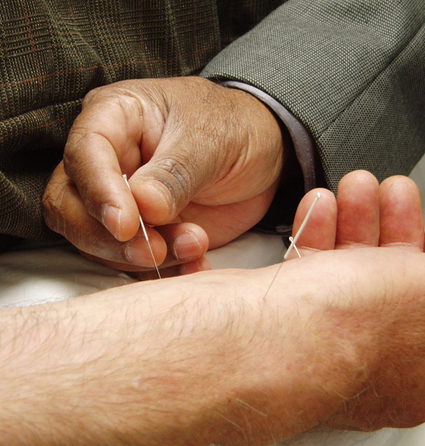

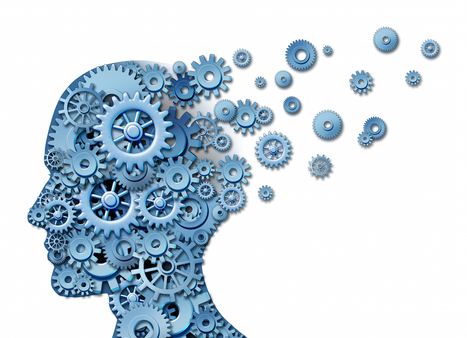
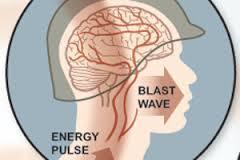
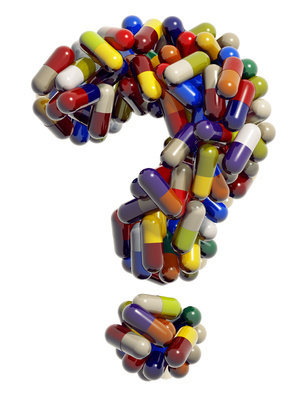
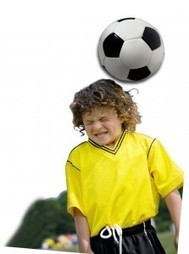
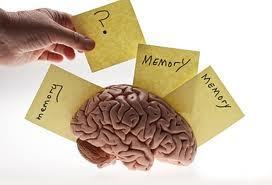







I have been convinced of the power of acupuncture to help heal TBI for many years. My patients, including my TBI patients, have benefited greatly from treatment by skilled practitioners of this ancient healing modality.
In this study, Chinese researchers treated patients who had suffered traumatic brain injury as a result of an earthquake. The patients were treated with either a standard Western medicine protocol (Rehab + hyperbaric oxygen) or the same protocol enhanced with traditional Chinese medicine in the form of acupuncture. At two months and six months, the group treated with the enhanced protocol had superior return of cognitive function and improvements in activities of daily living as compared to the standard Western protocol alone.
Recently, one of my patients who was unable to "turn the corner" on recovery from her tenth concussion began treatment with an acupuncturist who was trained by Professor Ming Qing Zhu, the developer of a unique form of neuro-acupuncture involving acupuncture points on the scalp. With the addition of this modality to cranial and other treatment, she has experienced a significant and impressive return of her formerly high energy levels, sleep, and executive and cognitive function within a period of eight weeks of treatment.
Acupuncture has an ancient healing pedigree. It will be most interesting to follow the scientific research on TBI as it uncovers acupuncture's power to help victims of TBI recover and heal.